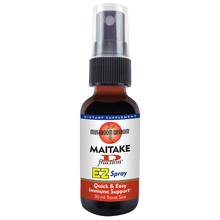Much recent research has focused on the nutritional needs of moms-to-be, both for the mother’s own health and that of the baby. While eating a balanced diet is essential, nutritional supplements can be an important part of the plan.
Nutrients for Pregnant Women
Here is a look at some of the research.
Discuss the following nutrients with your healthcare practitioner, and also consider a daily prenatal multivitamin/mineral.
-
Folic Acid
Folic acid is highly recommended as a supplement, as this B vitamin has been shown to help guard against birth defects of the brain and spine.
Studies have pointed to a reduction in the risk of anencephaly and spina bifida from supplementing with folic acid (the synthetic form of folate).
The US Preventive Services Task Force recommends that all women of child-bearing age take a daily folic acid supplement of 400 to 800 micrograms.
“Since neural tube defects occur in the first few weeks of pregnancy, it is important for women to be taking the recommended amount of folic acid before they become pregnant,” said Laura E. Mitchell, PhD, a professor at the University of Texas Health Science Center at the Houston School of Public Health.
Folic acid is the synthesized version of folate. Food sources of folate include soybeans, tofu, kidney beans, lentils, oysters, spinach, beef, and chicken (dark meat), plus fortified foods such as cereal and oatmeal.
-
Choline
Choline is a micronutrient similar to B vitamins. When pregnant women eat a diet rich in choline, their children tend to have better memory capacity, according to a recent study.
Choline is found in lean red meat, fish, poultry, egg yolks, beans and other legumes, nuts, and cruciferous vegetables such as broccoli and cabbage. It’s readily available as a supplement too.
The women in the study all consumed the same diet during their third trimester, but:
- one group received 480 milligrams (mg) per day of choline
- the other group received 930 milligrams (mg) per day of choline
Researchers later tested the infants for information processing and memory several times during the first 13 months after birth.
The babies whose mothers had taken higher amounts of choline tested consistently better.
-
Omega-3 Fatty Acids
One study found taking omega-3 fatty acid supplements during pregnancy greatly reduced the likelihood of childhood asthma. The risk in some children was lowered by more than 50 percent.
Pregnant women received 2.4 grams per day of EPA and DHA omega 3s from fish oil during their last trimester of pregnancy.
Their children were then assessed for five years. The researchers found a 31 percent reduction in asthma risk.
For mothers who had low blood levels of the omega 3s at the beginning of the study, their children’s risk fell by 54 percent.
Inflammation in the airways and lungs is a significant factor in asthma. Fatty acids from fish oil help reduce inflammation.
-
Iron
Necessary to carry oxygen to the baby.
Reducing Potential Allergies
A 2018 study found that children whose mothers took fish oil capsules while pregnant and breastfeeding were less likely to have certain allergies.
Researchers also found that if a mother took a probiotic supplement during those times, her child had a reduced risk of eczema.
“Our research suggests probiotic and fish oil supplements may reduce a child’s risk of developing an allergic condition, and these findings need to be considered when guidelines for pregnant women are updated,” said lead author Robert Boyle, PhD.
His team’s findings included the following:
- Women who took a probiotic supplement from 36 weeks of pregnancy through three to six months of breastfeeding lowered the risk of eczema in their child by 22 percent.
- Women who took a fish oil capsule beginning at 20 weeks of pregnancy and during the first three to four months of breastfeeding reduced the risk of egg allergy in their child by 30 percent.
- Women’s avoidance of potentially allergenic foods such as nuts, dairy products, or eggs during pregnancy did not affect a child’s risk for allergies or eczema.
- Fish oil intake by women during pregnancy may reduce a child’s risk of peanut allergy.





